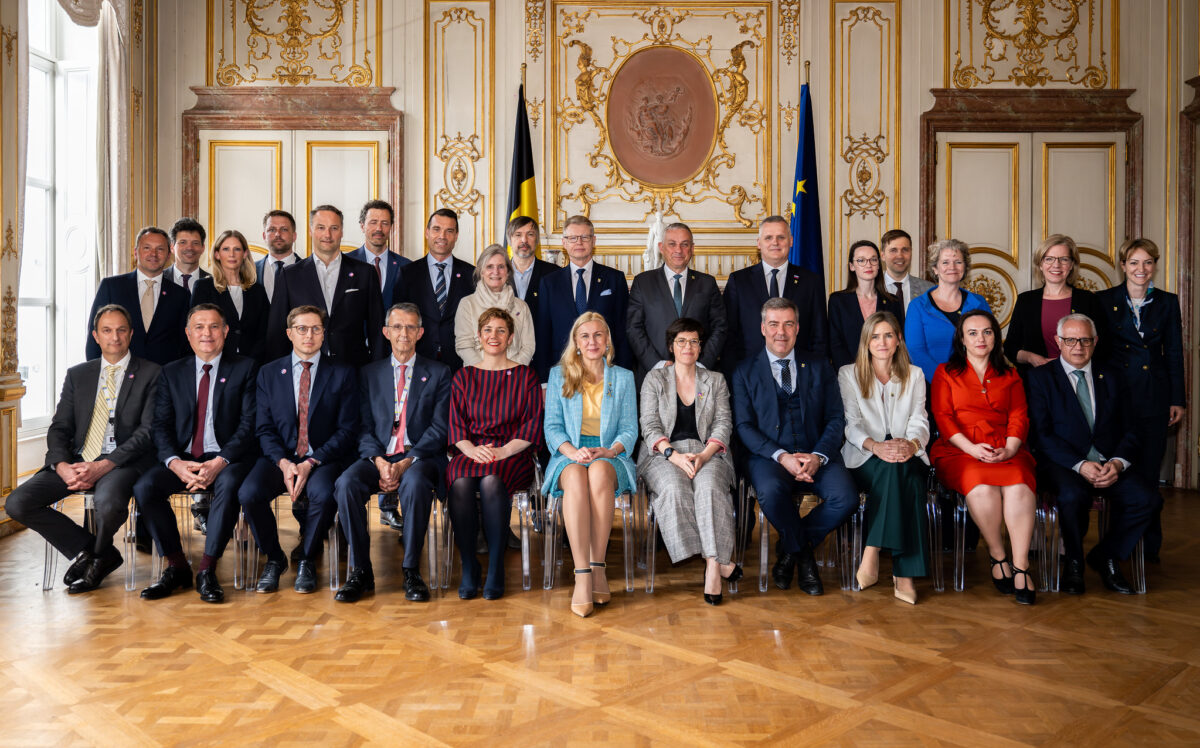The European Commission has announced the ESC in a bid to support the ailing European solar manufacturing sector. The document sets out a series of voluntary actions, including accelerated permitting for solar deployment and PV manufacturing projects, as well as “ambitous non-price criteria” in public procurement, renewable energy auctions, and other support schemes.
The charter was signed in Brussels on Monday by representatives of the 23 EU member states, the European Commission, and several industry bodies, including the European Solar Manufacturing Council (ESMC) and SolarPower Europe (SPE).
The signatories have committed to supporting “the competitiveness of the European PV manufacturing industry and promoting the creation of a market for high-quality products meeting high sustainability and resilience criteria, in full respect of the EU’s climate and energy objectives,” according to the European Commission.
“We must ensure the solar industry remains strong for Europe’s future, renewables-centred energy mix,” European Commissioner for Energy Kadri Simons said after the signing ceremony. “The European Solar Charter brings together the commission, national authorities and the industry, fostering cooperation and bringing support to the production of solar panels made in Europe.”
Europe's solar manufacturers have repeatedly urged the European Union to step in with emergency measures to protect them from insolvency. Earlier this year, the bloc finalized the Net Zero Industry Act, under which at least 40% of solar equipment deployed on the continent should be locally produced. However, until the ESC proposal, it has failed to introduce any emergency measures to help to safeguard European businesses.
“Further urgent action is needed in the short term to address the crisis in the European manufacturing industry,” said the draft document.
The ESC includes a series of voluntary actions to be undertaken to support the EU photovoltaic sector, such as price criteria. Resilience, sustainability, responsible business conduct, “ability to deliver,” innovation and cybersecurity criteria are also being proposed.
In addition, the document proposes to expedite permits for PV manufacturing facilities and innovative forms of solar energy deployment, such as agrivoltaics, floating solar, infrastructure-integrated PV, vehicle-integrated PV, and building-integrated PV.
Popular content
The draft said the European Commission also intends to facilitate access to EU funding for solar manufacturing projects under the Recovery and Resilience Facility, structural funds, the Innovation Fund, the EU Modernisation Fund, and Horizon Europe, including the Strategic Technologies European Platform (STEP).
The European Commission said it will also work with the European Investment Bank to support PV manufacturing projects, and a potential cross-border European solar manufacturing project.
“While the Charter alone is not sufficient to rebuild a robust European photovoltaic value chain, we hope it will work as a rallying point for accelerating concrete measures and serve as a signal that the European Union is not yet ready to hand in a walk-over in the competition with China, the US and India,” ESMC Secretary-General Johan Lindahl said in reaction to the proposal.
The ESMC said that the concrete deliverables of the ESC will depend on three essential steps,, to be taken next without delay. They include:
(1) Member states commit to quantitative off-take targets of resilient EU PV modules
(2) Dialogue with off-takers, followed by concrete commitments to define percentages of resilient EU PV modules in their portfolios
(3) Bridge funding to secure final investment decisions
“Access to EU funding must be facilitated for the European PV manufacturing projects to achieve at least 10 GW of additional Final Investment Decisions by 2025,” the organization said in a statement. “The European solar PV manufacturing industry needs clear, measurable, and tangible targets along with political support in this crisis.”
This content is protected by copyright and may not be reused. If you want to cooperate with us and would like to reuse some of our content, please contact: editors@pv-magazine.com.



By submitting this form you agree to pv magazine using your data for the purposes of publishing your comment.
Your personal data will only be disclosed or otherwise transmitted to third parties for the purposes of spam filtering or if this is necessary for technical maintenance of the website. Any other transfer to third parties will not take place unless this is justified on the basis of applicable data protection regulations or if pv magazine is legally obliged to do so.
You may revoke this consent at any time with effect for the future, in which case your personal data will be deleted immediately. Otherwise, your data will be deleted if pv magazine has processed your request or the purpose of data storage is fulfilled.
Further information on data privacy can be found in our Data Protection Policy.